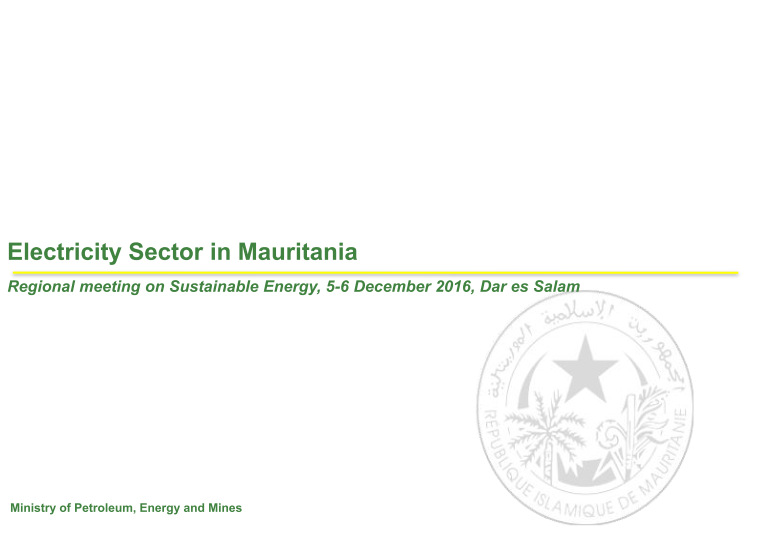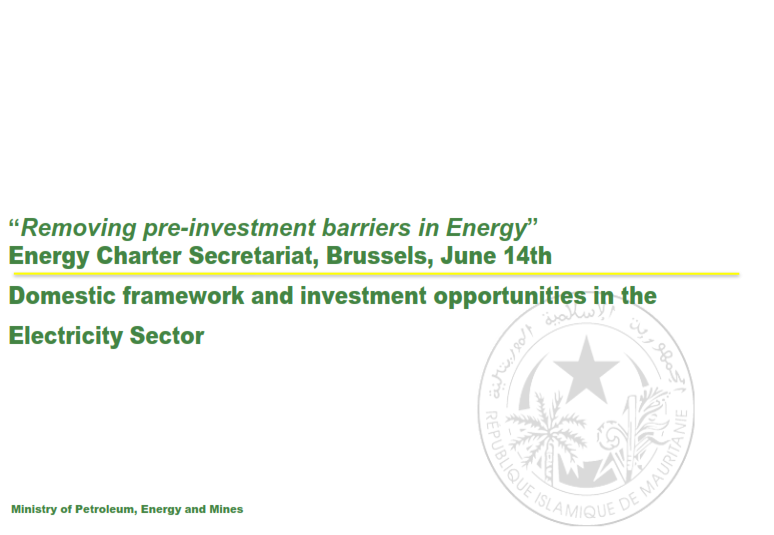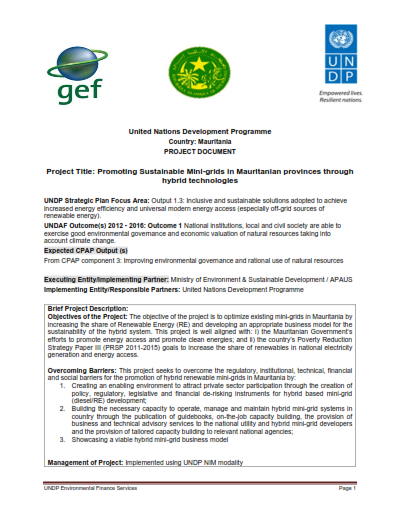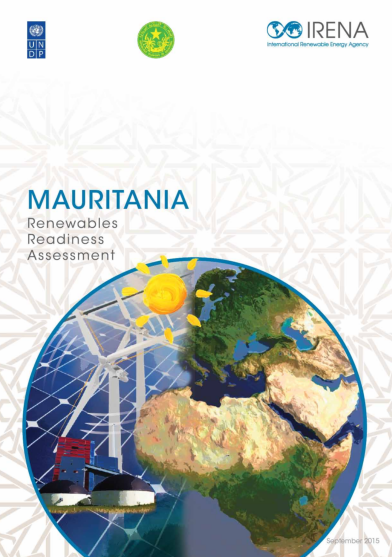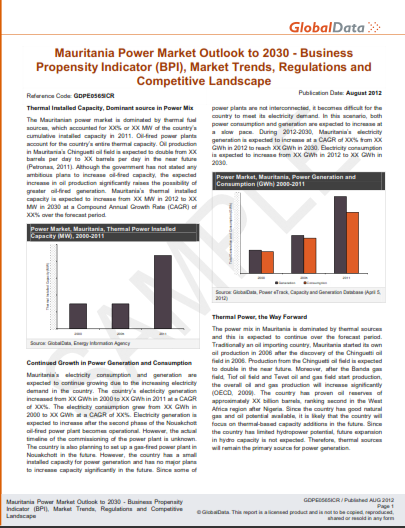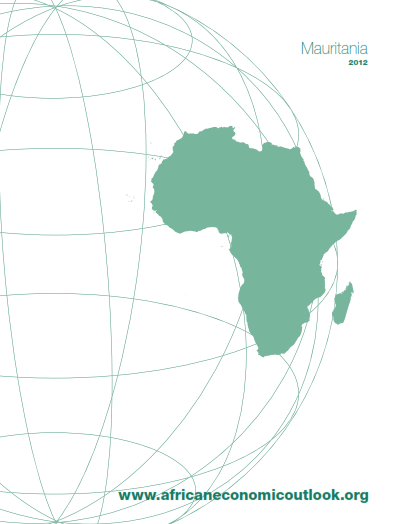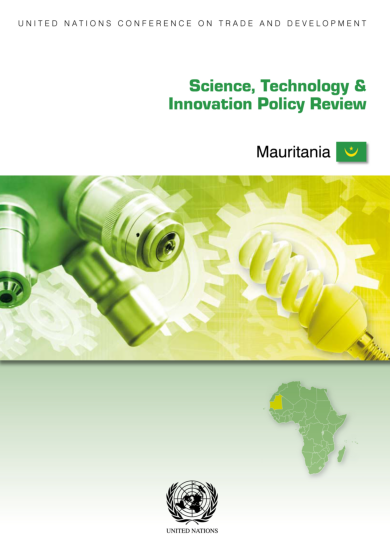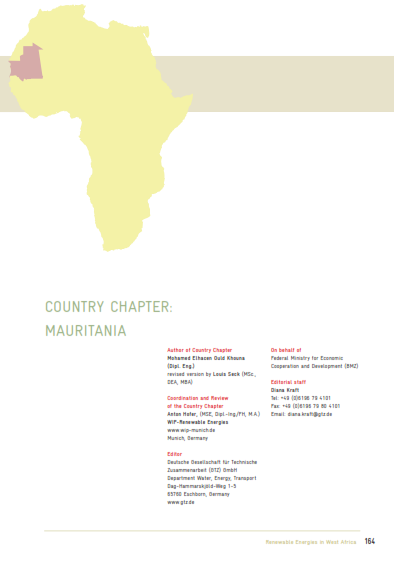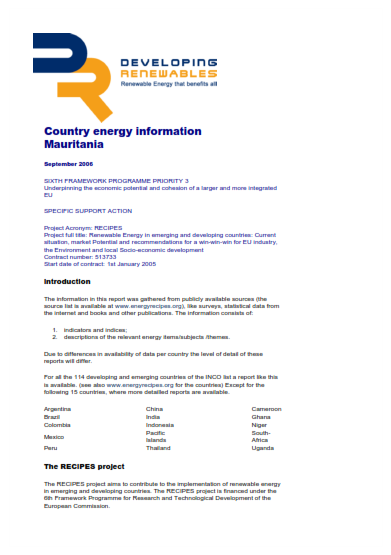We post here the relevant reports for the power sector in Mauritania. Feel free to join our efforts and share us any other you may have found. We'd be glad to add them to the list. Just send an email to This email address is being protected from spambots. You need JavaScript enabled to view it.
Publication date: 2016, December
Author: Ministry of Petroleum, Energy and Mines
Description: Sector Strategy:
- Add production capacity from local resource (mainly gas and hydroelectricity);
- Develop grid and interconnection with neighboring counties;
- Enhance part of renewable energies in the energy mix;
- Implement solutions tailored for communities in remoted areas.
Download Report >>
Publication date: 2016, June
Author: Ministry of Petroleum, Energy and Mines
Description: Sector Strategy:
- Add production capacity from local resource (mainly gas and hydroelectricity);
- Develop grid and interconnection with neighboring counties;
- Enhance part of renewable energies in the energy mix;
- Implement solutions tailored for communities in remoted areas.
Download Report >>
Publication date: 2015, November
Author: UNDP
Description: The objective of the project is to optimize existing mini-grids in Mauritania by increasing the share of Renewable Energy (RE) and developing an appropriate business model for the sustainability of the hybrid system. This project is well aligned with: i) the Mauritanian Government’s efforts to promote energy access and promote clean energies; and ii) the country’s Poverty Reduction Strategy Paper III (PRSP 2011-2015) goals to increase the share of renewables in national electricity generation and energy access.
Download Report >>
Publication date: 2015, September
Author: IRENA
Description: An ambitious programme, based on a series of appropriate reforms and major investment, is being led by the public authorities to carry out a recovery plan for the sector to ensure universal access to sustainable energy services at a lower cost and to ensure the availability of reliable and secure electricity for economic operators. The programme places great emphasis on reducing energy costs through the enhancement of national energy resources, including less-polluting resources such as thermal (natural gas) and renewables (solar and wind).
Download Report >>
Publication date: 2012, August
Author: Global Data
Description: The power mix in Mauritania is dominated by thermal sources and this is expected to continue over the forecast period. Traditionally an oil importing country, Mauritania started its own oil production in 2006 after the discovery of the Chinguetti oil field in 2006.
Download Report >>
Publication date: 2012
Author: AfDB
Description: The economy (not counting oil) grew 4.3% in 2011 and was predicted to expand faster (4.7%) in 2012, to record a significant advance for the third running. This was driven by major investment in mining especially gold, sizeable government investment and the robust performance of manufacturing.
Download Report >>
Publication date: 2010
Author: UN
Description: This Science Technology and Innovation Policy (STIP) Review, prepared at the request of the Government of Mauritania, provides an outline and assessment of the country’s current science, technology and innovation (STI) capabilities, their STI policies and the effectiveness of their national systems of innovation (NSIs) and knowledge systems in improving the productivity of enterprises and national economic performance as well as in helping the country to address various economic, social and environmental challenges.
Download Report >>
Visit Website >>
Publication date: 2010
Author: GTZ
Description: The Country Study of Mauritania is to provide an overview of the country’s energy market and to support decision-making for private investments for the Renewable Energy (RE) sector in Mauritania.
Download Report >>
Publication date: 2006, September
Author: ECREEE
Description: With increasing demand for energy and international payment to reduce carbon emissions from fossil fuels, Libya's solar conversion technologies are currently facing obstacles and cost-saving technologies for a complete energy system. This paper examines the most important sources of renewable energy in Libya, namely solar energy and through the solar energy data obtained from the solar energy research center in Tripoli Libya, that Libya is rich in solar so tremendously. The goal of this paper is assess the monthly averag the information in this report was gathered from publicly available sources, like surveys, statistical data from the internet and books and other publications. The information consists of: indicators and indices; descriptions of the relevant energy items/subjects/themes.
Download Report >>





